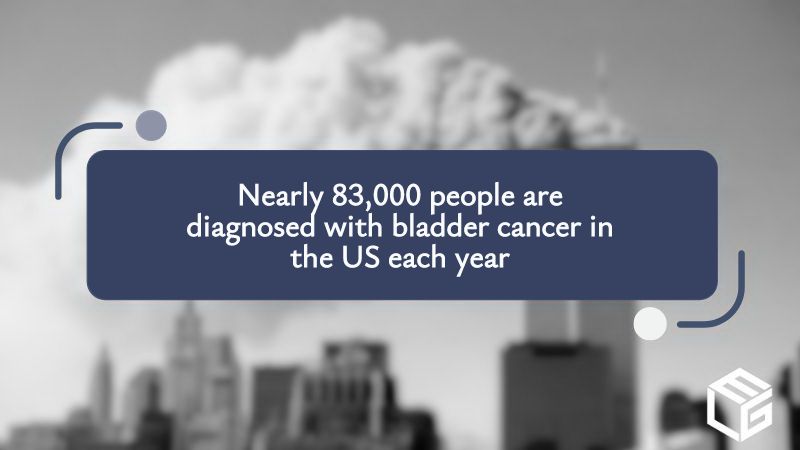An increased risk for bladder cancer observed in World Trade Center Rescue and Recovery Workers
The 9/11 attacks on the World Trade Center (WTC) in New York released toxic fumes into the environment. Most of the contaminants are known carcinogens such as benzene, silica, asbestos, and heavy metals. These toxins lingered in the air exposing thousands of workers during their long-term rescue and recovery work. The toxic exposure has been linked to an increased risk of bladder cancer, as per the largest cohort study.
Bladder cancer is one of the most common cancers diagnosed in 9/11 survivors and responders. As bladder cancer takes several years to develop, the responders and the survivors in the New York City Exposure Zone are now getting diagnosed with this type of cancer. Though the symptoms vary between individuals, some common symptoms of bladder cancer include:
- Passing blood-stained urine
- Frequent urge to urinate
- Pain or burning sensation while passing urine
- Abdominal pain
- Unintentional weight loss
- Loss of appetite
- Swelling of feet
If detected early, bladder cancer can be treated effectively. Moreover, if you are a 9/11 responder or survivor of the 9/11 terrorist attack and have been diagnosed with bladder cancer, you are likely to be eligible for 9/11 Victim Compensation Fund benefits.
9/11 Victim Compensation Fund payout: what you should know
The compensation payout for a 9/11 victim is calculated using the formula "non-economic loss + economic loss – collateral offsets." Collateral offsets include the compensation received for your injury from other sources. So, if you were present at the WTC vicinity during or after the attacks, and have been suffering from bladder cancer, you will be eligible to receive compensation from the 9/11 Victim Compensation Fund. While the average payout amounts to $250,000 for bladder cancer, the compensation can be higher and depends on the severity of your injury.
